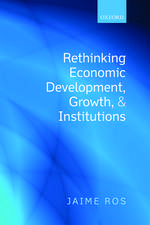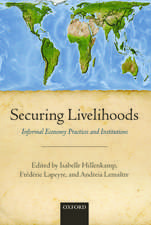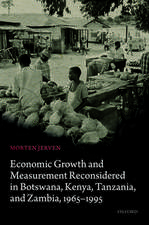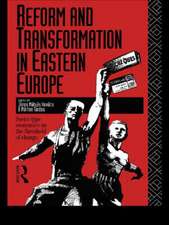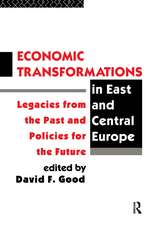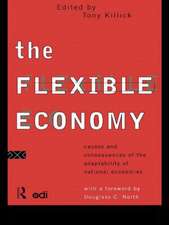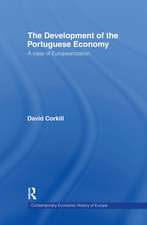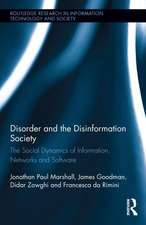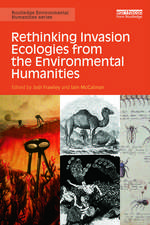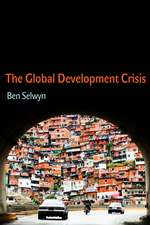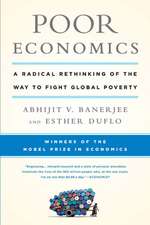Environmental Change and the World's Futures: Ecologies, ontologies and mythologies: Routledge Explorations in Environmental Studies
Editat de Jonathan Paul Marshall, Linda Connoren Limba Engleză Paperback – 9 apr 2017
This book will appeal to researchers and students in anthropology, sociology, environmental studies, cultural studies, psychology and politics.
| Toate formatele și edițiile | Preț | Express |
|---|---|---|
| Paperback (1) | 421.63 lei 6-8 săpt. | |
| Taylor & Francis – 9 apr 2017 | 421.63 lei 6-8 săpt. | |
| Hardback (1) | 1059.45 lei 6-8 săpt. | |
| Taylor & Francis – 4 sep 2015 | 1059.45 lei 6-8 săpt. |
Din seria Routledge Explorations in Environmental Studies
-
 Preț: 281.77 lei
Preț: 281.77 lei -
 Preț: 243.62 lei
Preț: 243.62 lei -
 Preț: 288.87 lei
Preț: 288.87 lei -
 Preț: 294.72 lei
Preț: 294.72 lei -
 Preț: 326.82 lei
Preț: 326.82 lei -
 Preț: 310.88 lei
Preț: 310.88 lei -
 Preț: 310.29 lei
Preț: 310.29 lei -
 Preț: 326.49 lei
Preț: 326.49 lei -
 Preț: 311.41 lei
Preț: 311.41 lei -
 Preț: 311.41 lei
Preț: 311.41 lei -
 Preț: 279.47 lei
Preț: 279.47 lei -
 Preț: 309.12 lei
Preț: 309.12 lei -
 Preț: 378.44 lei
Preț: 378.44 lei -
 Preț: 416.22 lei
Preț: 416.22 lei -
 Preț: 444.62 lei
Preț: 444.62 lei - 42%
 Preț: 234.90 lei
Preț: 234.90 lei -
 Preț: 480.62 lei
Preț: 480.62 lei - 12%
 Preț: 325.34 lei
Preț: 325.34 lei -
 Preț: 443.65 lei
Preț: 443.65 lei - 18%
 Preț: 1056.28 lei
Preț: 1056.28 lei -
 Preț: 442.50 lei
Preț: 442.50 lei -
 Preț: 461.50 lei
Preț: 461.50 lei -
 Preț: 449.41 lei
Preț: 449.41 lei - 18%
 Preț: 1060.52 lei
Preț: 1060.52 lei - 18%
 Preț: 1109.99 lei
Preț: 1109.99 lei - 25%
 Preț: 852.63 lei
Preț: 852.63 lei -
 Preț: 389.38 lei
Preț: 389.38 lei - 18%
 Preț: 699.99 lei
Preț: 699.99 lei - 15%
 Preț: 418.51 lei
Preț: 418.51 lei -
 Preț: 416.22 lei
Preț: 416.22 lei -
 Preț: 407.57 lei
Preț: 407.57 lei - 18%
 Preț: 1056.28 lei
Preț: 1056.28 lei - 26%
 Preț: 846.09 lei
Preț: 846.09 lei -
 Preț: 438.30 lei
Preț: 438.30 lei - 15%
 Preț: 423.09 lei
Preț: 423.09 lei -
 Preț: 448.44 lei
Preț: 448.44 lei - 13%
 Preț: 296.95 lei
Preț: 296.95 lei - 18%
 Preț: 1167.71 lei
Preț: 1167.71 lei - 16%
 Preț: 65.03 lei
Preț: 65.03 lei - 31%
 Preț: 767.88 lei
Preț: 767.88 lei
Preț: 421.63 lei
Nou
Puncte Express: 632
Preț estimativ în valută:
80.68€ • 84.23$ • 66.77£
80.68€ • 84.23$ • 66.77£
Carte tipărită la comandă
Livrare economică 04-18 aprilie
Preluare comenzi: 021 569.72.76
Specificații
ISBN-13: 9781138056619
ISBN-10: 1138056618
Pagini: 286
Dimensiuni: 156 x 234 x 20 mm
Greutate: 0.43 kg
Ediția:1
Editura: Taylor & Francis
Colecția Routledge
Seria Routledge Explorations in Environmental Studies
Locul publicării:Oxford, United Kingdom
ISBN-10: 1138056618
Pagini: 286
Dimensiuni: 156 x 234 x 20 mm
Greutate: 0.43 kg
Ediția:1
Editura: Taylor & Francis
Colecția Routledge
Seria Routledge Explorations in Environmental Studies
Locul publicării:Oxford, United Kingdom
Public țintă
PostgraduateCuprins
Introduction: Ecologies, ontologies and mythologies of possible futures Part 1 Intellectual and speculative engagements with ecological change 1. Towards an anthropology of the future: visions of a future world in the era of climate change 2. The first draft of the future: journalism in the ‘Age of the Anthropocene’ 3. Ecological complexity and the ethics of disorder Part 2 The politics of engagement 4. Futures of governance: ecological challenges and policy myths in tuna Fisheries 5. The work of waste-making: biopolitical labour and the myth of the global city 6. From Sociological Imagination to ‘ecological imagination’: Another Future is Possible Part 3 Environmental change in specific places and cultures 7. Indigenous ontologies and developmentalism: analysis of the National Consultations for the Kiribati Adaptation Program 8. When climate change is not the concern: realities and futures of environmental change in village Nepal 9. Ontologies and ecologies of hardship: past and future governance in the Central Australian arid zone 10. From good meat to endangered species: indigenising nature in Australia’s Western Desert and in Germany’s Ruhr District Part 4 Body and psyche 11. Climate change imaginings and Depth Psychology: reconciling present and future worlds 12. What wrecks reveal 13. Emergent ontologies: natural scepticism, weather certitudes and moral futures Part 5 Technological mythology 14. Official optimism in the face of an uncertain future: Swedish reactions to climate change threats 15. Geo-engineering, imagining and the problem cycle: a cultural complex in action 16. The creation to come: pre-empting the evolution of the bioeconomy
Descriere
The futures discussed in this book primarily arise from awareness of the potentially disruptive impact of climate change and ecological instability on human societies. This book’s framework embraces an appreciation of difference and non-holism, as it is unlikely that one solution to the many disruptive futures perceived throughout the world can be found. Indeed any such ‘one solution’ may increase the disruptive effects found in local situations. Each chapter invites reflection on diverse ways of comprehending global warming and other manifestations of major environmental change, as well as on the forms, and shapers, of agency that influence people’s understanding and response. In order to encourage the appreciation of the different future worlds either imagined and emergent in the present, the scope of the chapters extends beyond the usual geopolitical focus on the North Atlantic world, to encompass Nepal, islands in the Pacific, Sweden, coastal Scotland and remote, regional and urban Australia.


